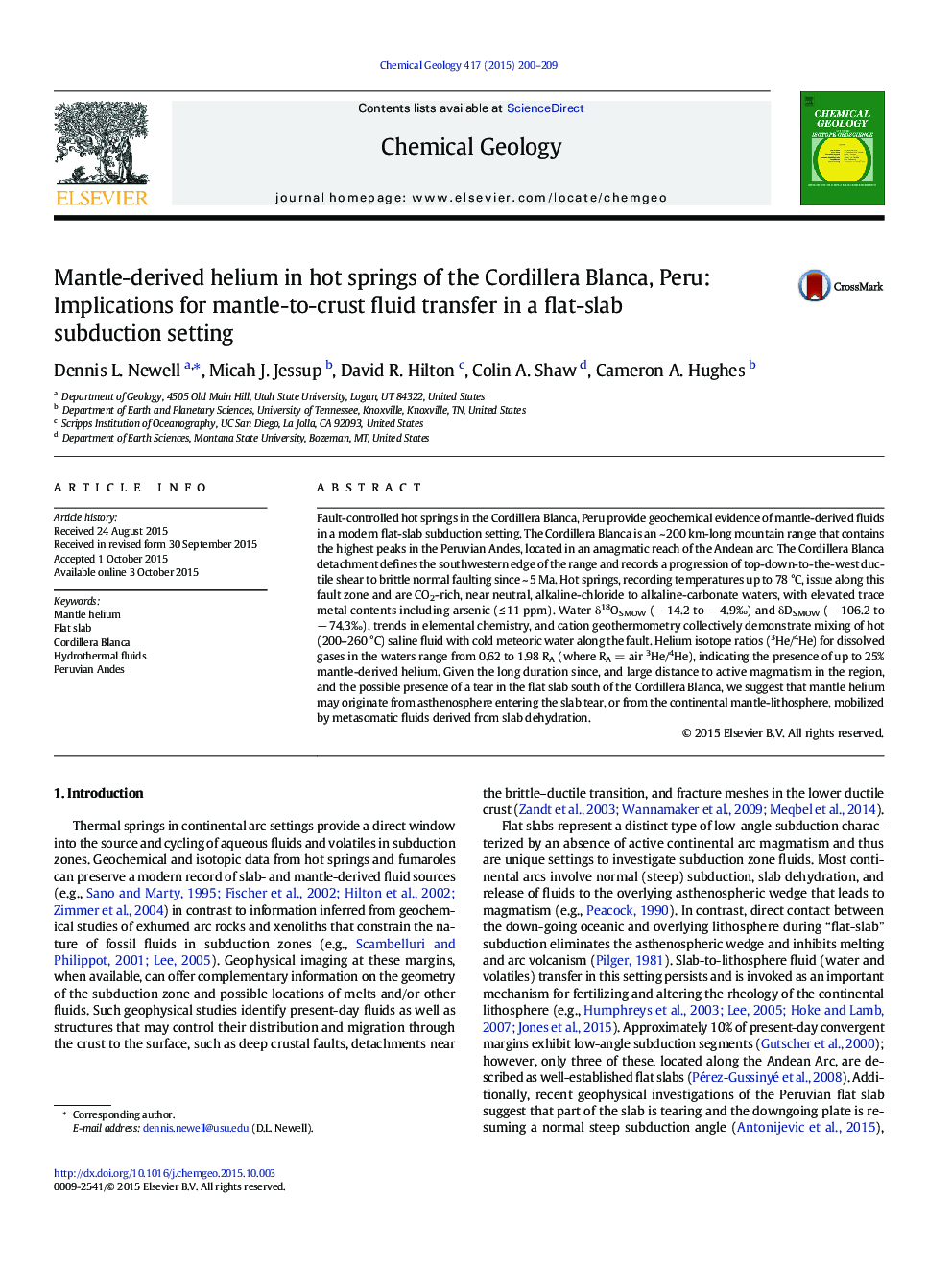| کد مقاله | کد نشریه | سال انتشار | مقاله انگلیسی | نسخه تمام متن |
|---|---|---|---|---|
| 6436263 | 1637557 | 2015 | 10 صفحه PDF | دانلود رایگان |

- Mantle volatile signal detected in hot spring geochemistry from the Cordillera Blanca, Peru, above amagmatic flat slab
- Mantle helium may be the shallow geochemical manifestation of tear in Peruvian flat slab.
- Hydrothermal groundwater circulation to 11Â km in Cordillera Blanca detachment fault
- Hot springs carry elevated dissolved metals, including up to 11Â ppm arsenic.
Fault-controlled hot springs in the Cordillera Blanca, Peru provide geochemical evidence of mantle-derived fluids in a modern flat-slab subduction setting. The Cordillera Blanca is an ~ 200 km-long mountain range that contains the highest peaks in the Peruvian Andes, located in an amagmatic reach of the Andean arc. The Cordillera Blanca detachment defines the southwestern edge of the range and records a progression of top-down-to-the-west ductile shear to brittle normal faulting since ~ 5 Ma. Hot springs, recording temperatures up to 78 °C, issue along this fault zone and are CO2-rich, near neutral, alkaline-chloride to alkaline-carbonate waters, with elevated trace metal contents including arsenic (â¤Â 11 ppm). Water δ18OSMOW (â 14.2 to â 4.9â°) and δDSMOW (â 106.2 to â 74.3â°), trends in elemental chemistry, and cation geothermometry collectively demonstrate mixing of hot (200-260 °C) saline fluid with cold meteoric water along the fault. Helium isotope ratios (3He/4He) for dissolved gases in the waters range from 0.62 to 1.98 RA (where RA = air 3He/4He), indicating the presence of up to 25% mantle-derived helium. Given the long duration since, and large distance to active magmatism in the region, and the possible presence of a tear in the flat slab south of the Cordillera Blanca, we suggest that mantle helium may originate from asthenosphere entering the slab tear, or from the continental mantle-lithosphere, mobilized by metasomatic fluids derived from slab dehydration.
Journal: Chemical Geology - Volume 417, 6 December 2015, Pages 200-209